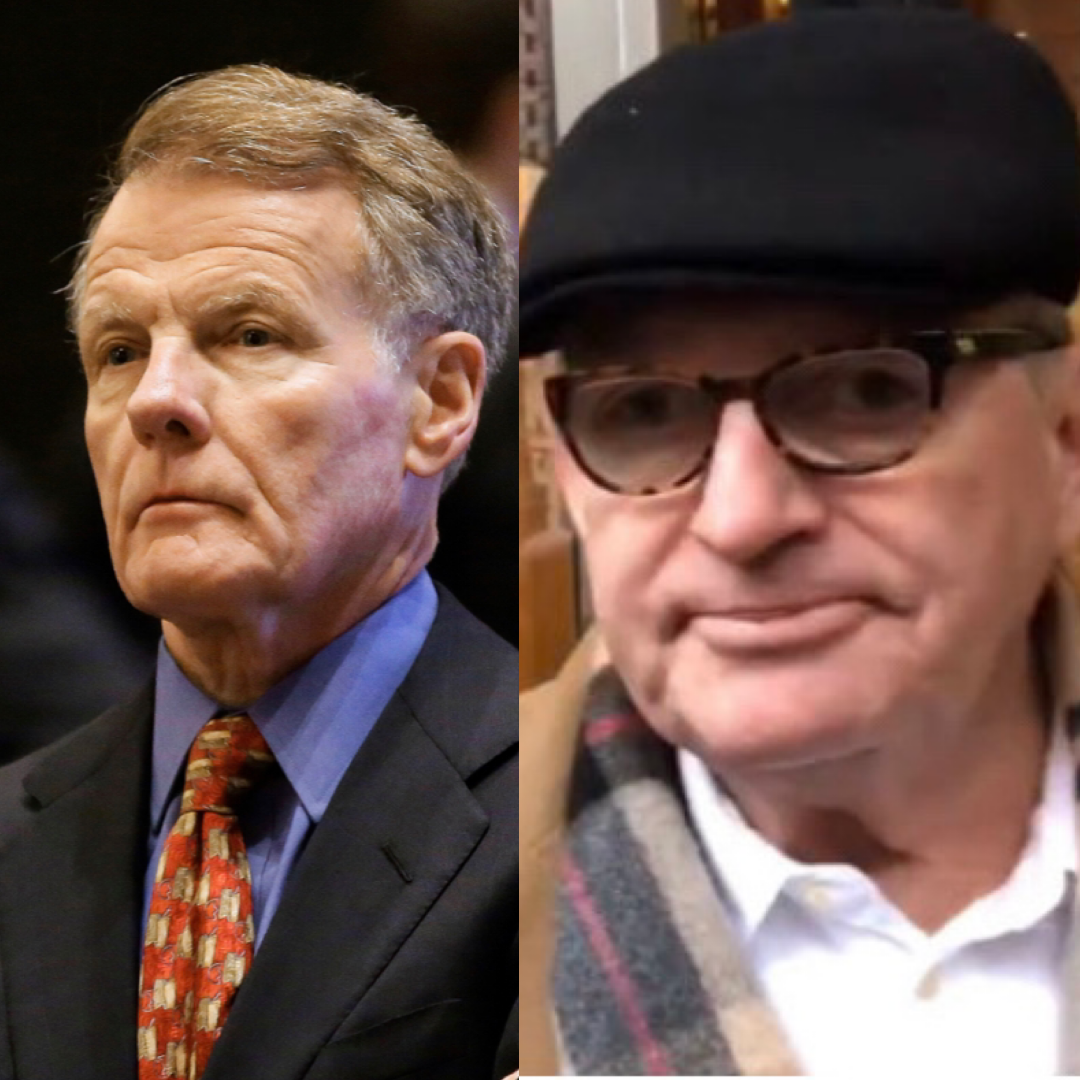As federal case still orbits Madigan, what’s next for the ComEd bribery probe?

It’s the biggest federal corruption investigation in years, but the most remarkable thing about the Commonwealth Edison bribery probe in 2021 might be what didn’t happen.
The year began with pressure mounting on Michael Madigan, the then-powerful House speaker whose ironclad grip on the General Assembly was slipping after being exposed the previous summer as “Public Official A” in the ComEd scandal and again in a bombshell postelection indictment of a key player and others alleging ComEd paid bribes to win his influence in Springfield.
By the end of January, Madigan was out as speaker after a record reign of nearly 40 years. He resigned his House seat and his position as head of the state Democratic Party soon after, and rumors began to bubble at the Dirksen U.S. Courthouse that prosecutors were readying to file a superseding indictment potentially adding Madigan to the already explosive case.
Those rumors waxed and waned in legal and political circles for weeks, culminating in May, when an attorney for one of four defendants already charged in the alleged scheme told a federal judge there had been “intimations” that new charges were imminent.
That was seven months ago. And as the year drew to a close, crickets.
Much of the evidence in the case has already been laid out in the indictment brought in November 2020 against Madigan’s longtime confidante, Michael McClain, and three others who allegedly helped orchestrate the bribery campaign: former ComEd CEO Anne Pramaggiore, lobbyist John Hooker and consultant Jay Doherty, the former head of the City Club of Chicago. All four have pleaded not guilty to bribery conspiracy charges.
The alleged scheme has also been detailed in a parallel case against ComEd, which was charged with bribery in July 2020 and has admitted to hiring a long list of Madigan-connected consultants in what were often do-nothing jobs to help grease the wheels for legislation the utility wanted passed in Springfield.
ComEd agreed to pay a record $200 million fine and cooperate in the probe in exchange for the charges being dropped in three years.
Meanwhile, the indictment against McClain and his co-defendants is heating up, with a jury trial tentatively set for September.
Before that happens, U.S. District Judge Harold Leinenweber is expected to rule in the coming months on several defense motions challenging the evidence in the case, including allegations that prosecutors misused the federal bribery statute by trying to criminalize legal lobbying and consulting.
“The government does not allege any connection between the jobs and any actions by (Madigan),” lawyers for the defendants wrote in a motion to dismiss certain counts earlier this year. “Adopting the government’s view would put huge numbers of American citizens at risk of prosecution for their ordinary participation in the political process.”
That argument is strikingly similar to one made in the case against another high-profile elected official, former Democratic Gov. Rod Blagojevich, who claimed that his efforts to fill the U.S. Senate seat vacated by President-elect Barack Obama in 2008 were not tied directly to any campaign donations, jobs or other things of value, and therefore did not constitute a bribe.
Defense attorneys in the McClain case also referenced another famous Illinois politician, Abraham Lincoln, noting that the revered president asked in May 1863 that U.S. Trust Corp. hire the nephew of a Union Army general killed in a Civil War battle.
“Even Abraham Lincoln, renowned for his honesty, made job recommendations while serving as president,” their motion stated.
In response, prosecutors have argued the federal bribery law does not require a quid pro quo, and even if it did, the allegations in the indictment make clear that Madigan was in on the scheme.
Over a nine-year period, ComEd provided at least $700,000 in benefits to key Madigan political operatives that “did not consist merely of lobbying” and proved to be an effective means to gain influence at the Capitol, Assistant U.S. Attorney Amarjeet Bhachu wrote in court filing last year.
“Here, the charges are not based on political logrolling, but rather, on private benefits in the form of jobs, contracts, and payments offered to be paid by a private company in order to influence and reward a legislator in carrying out his official duties,” Bhachu wrote.
In their most recent filing last month, prosecutors wrote they are not required to prove that ComEd intended to bribe Madigan for support on any particular legislation, but rather provided an ongoing “stream of benefits” to him in hopes it would help the company with its overall legislative agenda.
The indictment alleged that beginning in 2011, the defendants “arranged for various associates” of Madigan — including his political allies and campaign workers — to “obtain jobs, contracts and monetary payments” from ComEd, even in instances where they did little or no actual work.
McClain and the other defendants also conspired to have ComEd hire a Madigan-favored law firm and lawyer, previously identified in public testimony as Victor Reyes of Reyes Kurson, and to accept into ComEd’s summer internship program a certain number of students who lived in Madigan’s 13th Ward, according to the charges.
Pramaggiore and McClain also allegedly took steps to have an individual appointed to ComEd’s board of directors at the request of Madigan and McClain, the indictment stated. The Tribune has identified the appointee as Juan Ochoa, the former head of the Metropolitan Pier and Exposition Authority of Chicago.
Miss Clipping Out Stories to Save for Later?
Click the Purchase Story button below to order a print of this story. We will print it for you on matte photo paper to keep forever.

